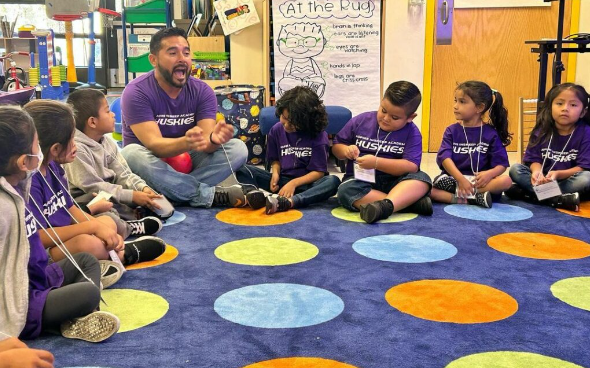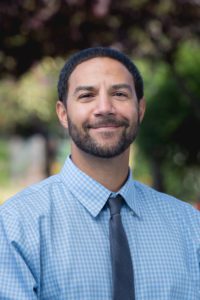
Commentary: Academic rigor versus cultural relevance is a false choice
Original EdSource article found here.
COMMENTARY | Black Student Success
By Chris Carr
Executive Director, Aspire Los Angeles
February 14, 2024

But balancing these approaches is more important than ever as our schools continue to rebound from pandemic-related learning loss coupled with the ongoing social-emotional needs of students. We should not have to prioritize one approach over the other: academic rigor, or supporting students’ social-emotional needs through culturally relevant teaching and experiences. Individually, each approach falls short in providing all students with the support they require for a successful future. By reframing them as mutually reinforcing rather than mutually exclusive, we have the potential to significantly transform education for every child.
Culturally relevant teaching is the conduit to academic success, and rigorous instruction is effective when grounded in culturally relevant teaching. To support our students, we must equip them with the tools for empowerment while also working to create inclusive educational environments that foster support.
In practice, this means everything from ensuring our teachers and staff reflect the demographic makeup of our students, to examining the resources and professional development we bring into our schools to make sure all our students’ needs are met. It means having data-driven conversations, grounded in equity, about how we are serving our most marginalized students.
As a school leader at Aspire Public Schools in Los Angeles, we knew some of our most vulnerable students were those who were chronically absent. Diving into the data, we discovered that many of our students missed school around three-day weekends and holidays. As a part of the implementation of our positive behavioral and intervention support (PBIS) framework, we focused on timing school celebrations and family engagement activities before and after three-day weekends and holidays so that students wouldn’t want to miss out on the fun. Additionally, teachers reach out to families of absent students to provide a more personal touch and communicate the positive impact their child has in their classroom community when they are at school. The early results of implementing this PBIS approach are showing promise in reducing absenteeism, with a year-over-year decrease in chronic absenteeism rates across our 11 Los Angeles schools.
A data-driven approach grounded in equity can also help serve special education students. For example, at one of our schools, students in special education demonstrated notable progress in math, surpassing the growth rates in math seen among their peers in general education, both in LAUSD and statewide. The schools took a different approach to intervention than they had in the past. Previously, students with individual education plans (IEPs), which are required for all students in special education, were not included in math interventions — an additional 20-minute small-group math instruction during the school day. Last year, students with IEPs participated in these math interventions along with general education students. This additional intervention, combined with regular “teach back” sessions during which teachers practice delivering content to their peers, gathering feedback and strengthening their practice, yielded positive results among our special education learners.
Developing partnerships to incorporate Afrocentric and LGBTQ+ curriculum and resources can also make an impact. This has included everything from the establishment of several Black student union chapters to a Black families advisory council, where families meet quarterly to discuss Black educational content and curricula. I can say firsthand that we’re seeing these partnerships show promising results: Participants in Black student union programs experienced an average reduction of eight days in absenteeism compared to the previous year. Plans are also underway to pilot an LGBTQ+ course that aligns with state A-G standards (courses required for admission in California public universities). Lastly, dedicating resources to cultivate a pipeline of Black educators is critical to establishing a more diverse teaching staff.
To deliver on the promise of excellent education for every child, it is time to chart a path that is both rigorous and culturally relevant. This is how we deliver on the promise of an education model that serves all students.
●●●
Chris Carr is the executive director for the Los Angeles region of Aspire Public Schools, a nonprofit charter management organization.
The opinions expressed in this commentary represent those of the author. EdSource welcomes commentaries representing diverse points of view. If you would like to submit a commentary, please review our guidelines and contact us.